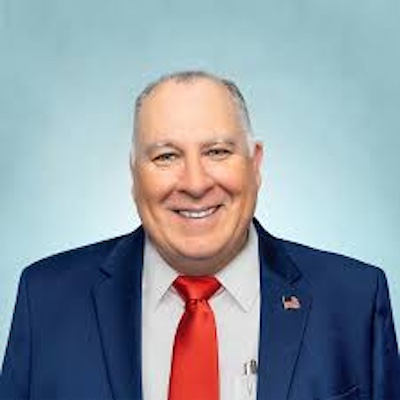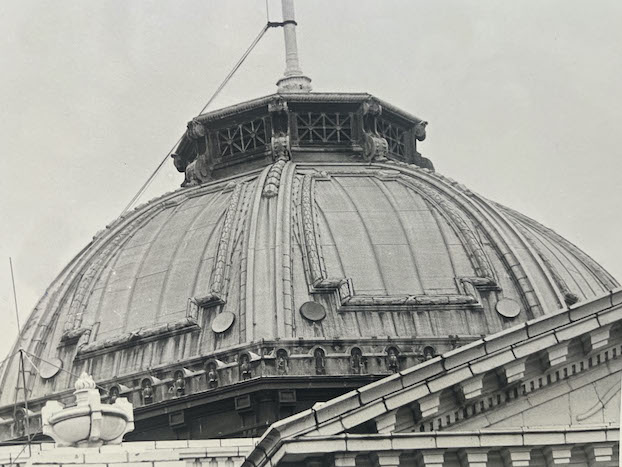Historical plaque unveiled to honor father of Jennings
Published 1:24 pm Monday, June 17, 2024

- David Cary of Lake Charles stands next to a new plaque in Founder’s Park honoring his great, great grandfather, Sylvester “S.L.” Cary as the founding father of Jennings. Cary is holding a cane his great, great grandfather had in 1905 for the 50th anniversary of Jennings. (Doris Maricle / American Press)
A new historical plaque was unveiled Friday honoring Sylvester “S.L.” Cary as the father of the City of Jennings.
Cary’s great, great grandson, David Cary, of Lake Charles took part in the unveiling in Founder’s Park along with city leaders and community members.
“I think it is awesome,” Cary said. “It took a lot of doing, but just the idea that they thought it was important enough and wanted to remember him as the founder of Jennings.”
Cary, who was carrying the cane that his great, great grandfather had in 1905 for the 50th anniversary of Jennings, said his great, great grandfather was a railroad agent who was attracted to the area by its prairieland and thought it would be good for his family and farmers.
The elder Cary lived in Jennings until his death in 1915 at the age of 87. He is buried in the Greenwood Cemetery.
Bernadette Hardy, a family friend from Jennings, said the plaque will acknowledge Cary’s legacy.
“This is awesome, but it should have been done a long time ago,” she said. “At least it’s getting done now.”
Mayor Henry Guinn said Cary was impressed with the area when he first arrived in 1882.
“He called the great land, (the land of) sunshine and flowers, and he sold it,” Guinn said. “He wrote letters and he sold it to his family in (the state of) Iowa and over the years they gravitate back and they claimed their stake and they created what you know today.”
The residents of Jennings are extremely thankful for Cary incorporating the city, he said.
Guinn presented Cary’s great, great grandson with a key to the city to honor his family’s history.
Resident Clint Person, who spearheaded the project, is working to share Cary’s story and the legacy that created what is now the City of Jennings.
“In 1882, just a few blocks from here, Father Cary stepped off (the train) and all he saw was prairieland and maybe a few houses,” Person said. “Something though, made him fall in love with the place. I can’t imagine what it was because all it was was a prairie, no trees.”
“But he hops back on his train. Goes back to Iowa and grabs Ma and the kids, starts packing his suitcases and you can just imagine him as he’s doing this he is telling everybody, ‘You have to come to south Louisiana. You’ve got to come to this place. There’s government land to be had.”
Once back in Jennings, Person said Cary built a house and started writing letters back to his friends and family in Iowa, who started coming to the area by the train loads.
Once here the group started building streets, homes and businesses and planning a city, Person said.
“This is the Yankee town of the south at that point because it’s all Iowans,” he said. “Pretty soon another train load of Kansans gets here, so we’re definitely very much a Yankee city at that point.”
By 1888, the population had grown to 300 and the town was incorporated. Two years later, the population had grown to 412, the majority of them from Iowa.
Cary continued to write letters inviting more people to move to the area. In 1892, he edited a book on Southwest Louisiana and the Southern Pacific Railroad distributed them at the World’s Fair in Chicago soliciting even more families to the area.
“And now 140 years later, it becomes glaringly obvious that we have nothing in this town that even mentions his name, other than his plot at the cemetery,” Person said.
The plaque will serve as a memorial to the man who dedicated his later years to the founding, development and citizens of this wonderful place we call home, he said.





